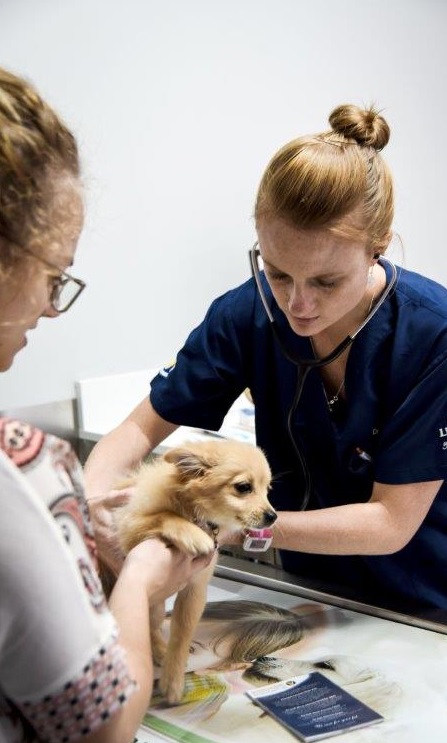If your dog snorts like he can’t breathe, it may be a sign of a respiratory issue or nasal obstruction. This can be caused by allergies, infections, or anatomical abnormalities.
Observe any other symptoms and consult your veterinarian for proper diagnosis and treatment. Addressing this issue promptly is essential for your dog’s health and well-being. Additionally, paying attention to your dog’s breathing patterns and seeking professional help will ensure that any underlying problems are addressed.
By being proactive, you can help your furry friend live a happy and healthy life.
Understanding Dog Snorting
Dog snorting can be concerning for pet owners, but it’s important to understand that there can be various reasons behind this behavior. One of the causes of dog snorting is nasal congestion, which can be a result of respiratory infections, foreign objects in the nasal passages, or allergies. Additionally, dogs may snort due to excitement, especially during play or exercise. It’s crucial for pet owners to be aware of symptoms to watch for, including sneezing, discharge from the nose, or any signs of distress. If your dog is snorting excessively or shows other concerning symptoms, it’s essential to consult a veterinarian for a proper diagnosis and treatment plan.
Seeking Veterinary Help
If your dog is snorting like he can’t breathe, it’s important to consult a vet. Common signs indicating a need for veterinary help include persistent snorting, difficulty breathing, or any other concerning symptoms. Refrain from attempting to self-diagnose, as the specific treatment options for your dog can vary based on the underlying cause. Seeking professional veterinary care will ensure an accurate diagnosis and proper management plan, ultimately promoting your dog’s well-being.
Supporting Your Snorting Dog
Home Care Practices: Your dog may snort due to various reasons such as allergies, infections, or nasal blockages. Provide a comfortable and quiet space for your dog to rest. Keep the environment free from irritants, such as smoke or strong scents. Maintain a clean and dust-free living area to alleviate potential allergens. Regularly check for any nasal discharge or unusual behavior. Gentle massage around the nasal area can provide relief and comfort. Ensure your dog stays well-hydrated to help clear the airways. Regular exercise and a healthy diet can aid overall respiratory health. Monitor the snorting behavior closely and seek veterinary advice if there are any concerns.

Credit: www.birnamvet.co.za
Frequently Asked Questions For Why Does My Dog Snort Like He Can’t Breathe
What Does It Mean When A Dog Snorts Uncontrollably?
Snorting in dogs could indicate an irritation, infection, or allergy. It may also be a sign of a respiratory issue, like a collapsing trachea or brachycephalic airway syndrome. Consulting a vet is crucial for proper diagnosis and treatment.
Why Does My Dog Make Weird Noises Like She Can’t Breathe?
Your dog may make weird noises like gasping or wheezing, which can indicate breathing issues. Common causes include allergies, respiratory infections, or tracheal collapse. Consult a vet for thorough examination and proper diagnosis. Regular veterinary check-ups can help detect any potential health concerns early.
Why Does My Dog Sound Like He’s Gasping For Air?
If your dog sounds like gasping for air, it could be due to respiratory distress. Possible causes are allergies, infections, or heart issues. It’s essential to seek veterinary care immediately for proper diagnosis and treatment.
What If My Dog Breathes Like Something Stuck In His Throat?
If your dog breathes like something is stuck, it may be a sign of an obstruction or respiratory issue. It’s essential to consult a vet for a proper diagnosis and treatment. Seek immediate medical attention if your dog shows signs of distress.
Conclusion
It’s crucial to address any concerns about your dog’s snorting with a professional. Understanding the potential causes, from respiratory issues to behavioral habits, is essential for their well-being. By seeking expert guidance, you can ensure that your furry friend receives the care and support they need for a healthy and happy life.


